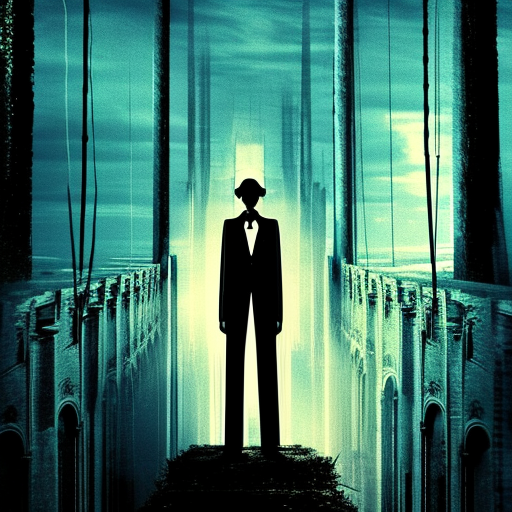One-line summary:
“The Trial” by Franz Kafka is a thought-provoking novel that explores the absurdity and powerlessness of the individual in a bureaucratic society.
The Absurdity of the Bureaucratic System
“The Trial” follows the story of Josef K., a bank employee who is arrested and put on trial for a crime that is never explicitly revealed to him. The novel delves into the absurdity of the bureaucratic system, where the individual is at the mercy of an incomprehensible and faceless authority. From the very beginning, Josef K. finds himself caught in a nightmarish web of legal proceedings, constantly seeking answers and explanations for his arrest. However, he is met with evasive responses, arbitrary rules, and a lack of transparency, leaving him feeling helpless and confused.
As Josef K. navigates through the labyrinthine corridors of the court and encounters various characters, he becomes increasingly entangled in a system that seems designed to perpetuate itself rather than deliver justice. The novel vividly portrays the dehumanizing effects of a bureaucracy that operates without reason or accountability. Kafka’s writing style, characterized by its precision and attention to detail, enhances the sense of claustrophobia and hopelessness that Josef K. experiences.
The Individual’s Powerlessness
Throughout the novel, Josef K. grapples with his own powerlessness in the face of the legal system. Despite his attempts to assert his innocence and challenge the absurdity of his situation, he is met with indifference and indifference from those around him. Even his own lawyer, Huld, seems more interested in prolonging the trial than in helping Josef K. find justice. This powerlessness is further emphasized by the lack of control Josef K. has over his own fate, as he is constantly at the mercy of the court’s whims and decisions.
Kafka’s exploration of the individual’s powerlessness in “The Trial” reflects the author’s own experiences living in a society dominated by bureaucracy. The novel serves as a critique of the dehumanizing effects of such systems, where individuals are reduced to mere cogs in a machine, stripped of their agency and voice.
The Search for Meaning and Redemption
As Josef K. delves deeper into the trial, he becomes consumed by a desperate search for meaning and redemption. He seeks answers to questions about his own existence, the nature of guilt, and the purpose of the trial itself. However, the more he searches, the more elusive these answers become. The novel raises profound philosophical questions about the nature of truth, justice, and the human condition.
In his quest for meaning, Josef K. encounters a variety of characters who represent different aspects of society. From the enigmatic court painter Titorelli to the seductive and mysterious Leni, these characters offer glimpses into the complexities of human nature and the ways in which individuals navigate a world that often seems arbitrary and unfathomable.
Key Takeaways:
- The absurdity of the bureaucratic system and its dehumanizing effects on individuals.
- The powerlessness of the individual in the face of a faceless and incomprehensible authority.
- The search for meaning and redemption in a world that often seems devoid of both.
“It is often safer to be in chains than to be free.”
– This quote from “The Trial” encapsulates the novel’s exploration of the paradoxical nature of freedom and captivity, highlighting the idea that sometimes the illusion of security can be more comforting than the uncertainty of true freedom.
“The Trial” is a haunting and thought-provoking novel that continues to resonate with readers today. Kafka’s masterful storytelling and exploration of existential themes make it a timeless work of literature.












